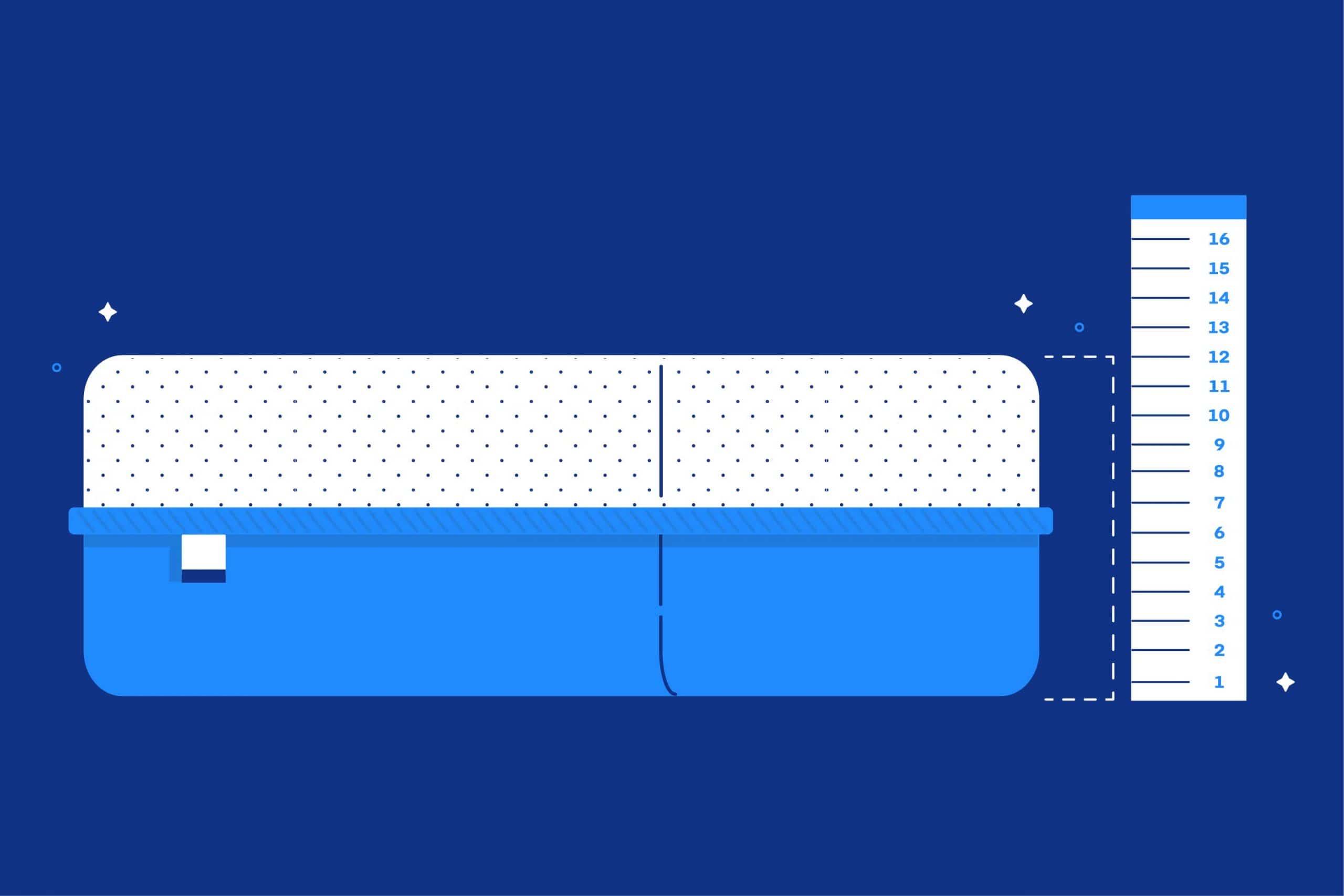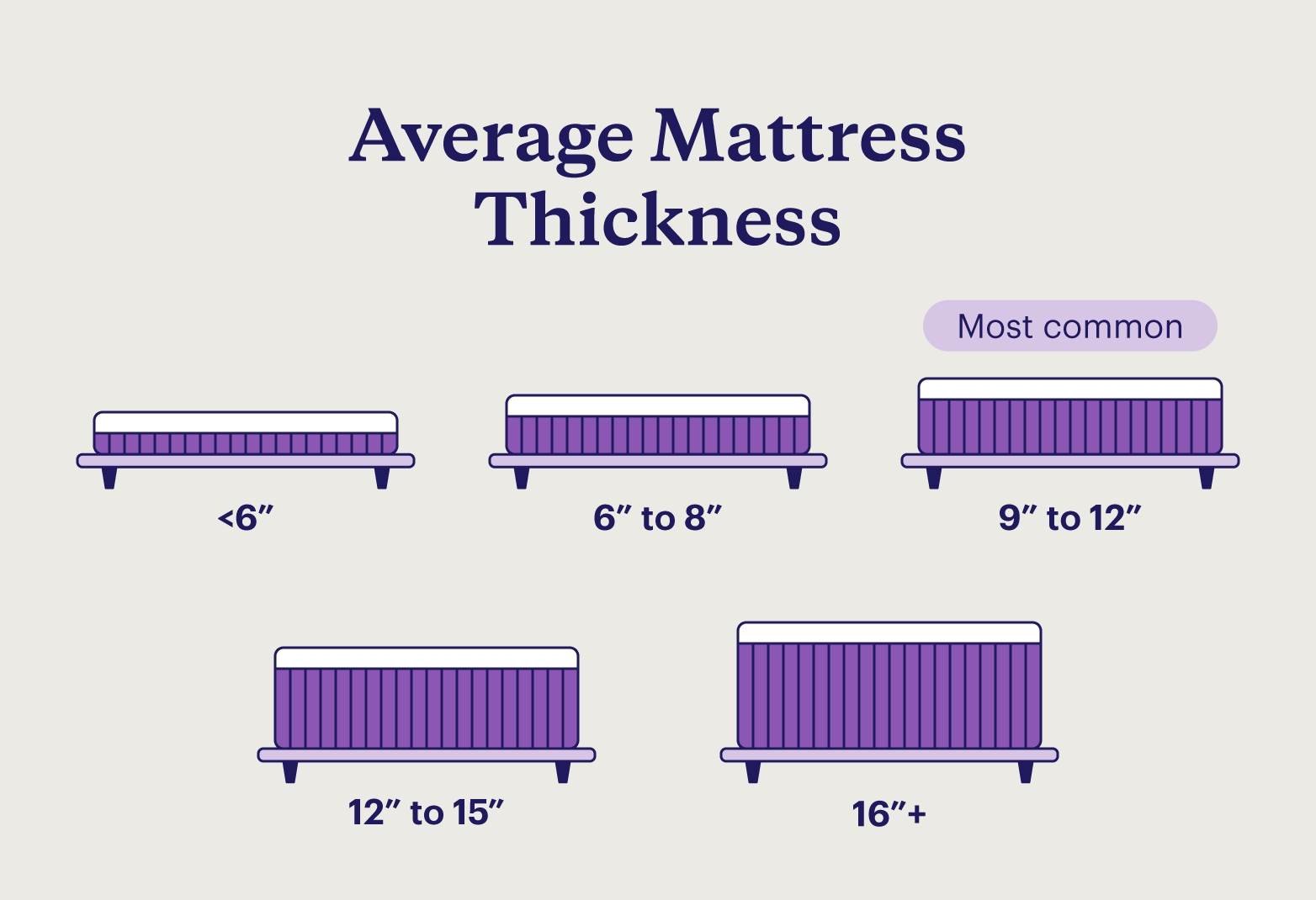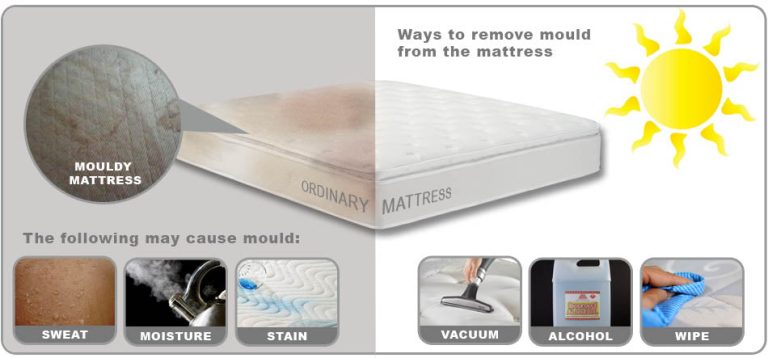How Thick Should Your Mattress Be: Expert Insights
Choosing the right mattress is important. It affects your sleep and comfort. One key factor is thickness. How thick should your mattress be?
Why Mattress Thickness Matters
Thickness is important for support. It also affects how comfortable you feel. Thicker mattresses often offer more comfort. But, they may not be right for everyone.
Factors Affecting Mattress Thickness
Several factors affect the thickness of a mattress. Let’s explore these factors.
Your Sleeping Position
Your sleeping position matters. Side sleepers often need thicker mattresses. They help cushion shoulders and hips. Back sleepers may prefer medium thickness. It provides good support. Stomach sleepers often need thinner mattresses. They keep the spine aligned.
Your Weight
Weight is important too. Heavier people may need thicker mattresses. They offer better support and comfort. Lighter people might prefer thinner mattresses. They still provide enough support.
Material Of The Mattress
Different materials have different thicknesses. Memory foam mattresses can be thick. They provide great comfort and support. Innerspring mattresses are usually thinner. They offer firmness and bounce.
Your Budget
Budget can affect your choice. Thicker mattresses may cost more. But, they often offer better comfort. Thinner mattresses can be cheaper. They still provide good support.

Credit: amerisleep.com
Common Mattress Thickness Options
Mattresses come in various thicknesses. Here are some common options:
| Thickness | Description |
|---|---|
| 6 inches | Thin. Good for kids or light adults. |
| 8 inches | Medium. Suitable for most sleepers. |
| 10 inches | Thick. Offers great support and comfort. |
| 12+ inches | Extra thick. Ideal for heavy sleepers. |
Pros and Cons of Thick Mattresses
Thick mattresses have pros and cons. Let’s look at them.
Pros
- Provide better support.
- Offer more comfort.
- Durable and last longer.
Cons
- More expensive.
- Heavy and hard to move.
- May not fit all bed frames.

Credit: purple.com
Pros and Cons of Thin Mattresses
Thin mattresses also have pros and cons. Let’s explore them.
Pros
- Cost-effective.
- Lightweight and easy to move.
- Fit most bed frames.
Cons
- May lack support.
- Less comfortable.
- May wear out faster.
How to Choose the Right Thickness
Choosing the right thickness is essential. Here are some tips:
Consider Your Needs
Think about your needs. Do you need more comfort? Do you need more support? Choose a thickness that meets your needs.
Try Before You Buy
Test mattresses in the store. Feel the thickness and comfort. This helps you make a better choice.
Check The Return Policy
Ensure the store has a good return policy. You can return the mattress if it doesn’t feel right.
Frequently Asked Questions
What Is The Ideal Mattress Thickness?
The ideal thickness varies by preference. Generally, 10-12 inches suits most sleepers.
Does Mattress Thickness Affect Sleep Quality?
Yes, it can. Proper thickness ensures support and comfort for better sleep.
How Does Body Weight Impact Mattress Thickness Choice?
Heavier individuals need thicker mattresses. They provide better support and durability.
Are Thicker Mattresses More Comfortable?
Often, yes. Thicker mattresses offer extra cushioning and support, enhancing comfort.
Does Mattress Thickness Matter For Back Pain?
Yes, it does. Proper thickness can provide adequate spinal support, easing back pain.
Conclusion
Choosing the right mattress thickness is important. It affects your sleep and comfort. Consider your sleeping position, weight, and budget. Try different options before buying. Choose a mattress that feels right for you.



![5 Best Cooling Mattress Cover for Tempurpedic [In 2025]](https://homeunderstandable.com/wp-content/uploads/2025/06/best-cooling-mattress-cover-for-tempurpedic.jpg)
![5 Best Mattress Topper for Osteoarthritis [In 2025]](https://homeunderstandable.com/wp-content/uploads/2025/06/best-mattress-topper-for-osteoarthritis.jpg)
![What Is The Best Air Mattress for RV Sofa Bed [In 2025]](https://homeunderstandable.com/wp-content/uploads/2025/06/best-air-mattress-for-rv-sofa-bed.jpg)
![What Is The Best Foam for Camper Mattress [In 2025]](https://homeunderstandable.com/wp-content/uploads/2025/08/Best-Foam-for-Camper-Mattress.jpg)
![What Is The Best Foam Mattress for Hot Sleepers [In 2025]](https://homeunderstandable.com/wp-content/uploads/2025/08/Best-Foam-Mattress-for-Hot-Sleepers.jpg)